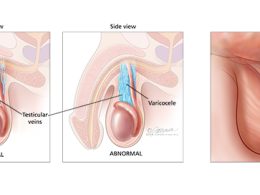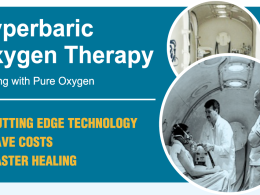Are you tired of one-size-fits-all healthcare? Do you ever wonder why certain treatments work for some people but not others? Enter precision medicine, the future of personalized healthcare. Precision medicine is changing the way doctors approach treatment by tailoring it to an individual’s unique genetic makeup and lifestyle factors. In this blog post, we’ll dive into what precision medicine is, its history, how it’s transforming healthcare today, and what the future holds for this revolutionary field. Get ready to learn about a new era in healthcare that promises to bring better outcomes and more targeted therapies!
What is precision medicine?
Precision medicine is an approach to healthcare that takes into account a person’s unique genetic makeup, lifestyle factors, and environment when designing treatment plans. This personalized approach allows doctors to tailor treatments to the specific needs of each patient, rather than relying on a one-size-fits-all model.
The goal of precision medicine is to improve patient outcomes by treating the underlying cause of disease instead of just managing symptoms. By analyzing an individual’s DNA and other biological markers, doctors can identify genetic mutations or other factors that may contribute to their condition.
Precision medicine also involves using advanced technologies such as artificial intelligence and machine learning algorithms to analyze large amounts of data from medical records and clinical trials. This data helps doctors make more informed decisions about which treatments are likely to be most effective for each patient.
Precision medicine represents a major shift in how we think about healthcare. It offers the promise of more targeted therapies and better outcomes for patients with complex or chronic conditions.
The history of precision medicine
The concept of precision medicine is not new, but its origin dates back to the late 20th century. In 1991, the term “personalized medicine” was first used in a scientific paper by Leroy Hood and colleagues. The idea was based on analyzing an individual’s genetic makeup to tailor treatments specific to their needs.
In the early 2000s, with advancements in genomics and technology, precision medicine gained momentum. Scientists were able to identify specific mutations or biomarkers that could predict a patient’s susceptibility or response to certain diseases.
The Human Genome Project also played a crucial role in advancing precision medicine. Completed in 2003, it provided researchers with an extensive database of genomic information that could be utilized for personalized treatments.
Today, precision medicine continues to evolve rapidly as more data is collected and analyzed through electronic health records and advanced computing systems. With ongoing research into genetics and molecular biology, there is much hope for even more targeted therapies and cures for complex diseases like cancer.
How precision medicine is changing healthcare
Precision medicine is changing the face of healthcare in many ways. One major change is that it’s enabling doctors to personalize treatments for their patients based on their individual genetic makeup, lifestyle and environment. This means that treatment plans can be tailored specifically to each patient’s needs, increasing the chances of successful outcomes.
Moreover, precision medicine has also helped researchers identify new disease subtypes and biomarkers for various illnesses. By analyzing large datasets from genomic sequencing and other sources, scientists are able to better map out diseases at a molecular level.
Additionally, with the help of artificial intelligence (AI) systems and machine learning algorithms, physicians can now quickly analyze complex data sets generated by genome sequencing tests. This allows them to make more informed decisions about diagnosis and treatment options.
Precision medicine is improving patient participation in clinical trials by allowing them access to information about ongoing studies that focus on specific diseases or conditions. As a result of this increased awareness among patients who may qualify for these trials but not know it otherwise, medical research is advancing much more quickly than before.
Precision medicine promises an exciting future where healthcare will become increasingly personalized and effective than ever before.
The future of precision medicine
The future of precision medicine is incredibly promising. As technology continues to advance, we can expect even greater personalized care for patients. One exciting possibility is the use of artificial intelligence to analyze vast amounts of patient data and identify patterns that may have previously gone unnoticed.
Another area where precision medicine could make a significant impact is in the field of cancer treatment. By analyzing a tumor’s genetic makeup, doctors can create targeted treatment plans that are tailored specifically to an individual’s cancer cells.
Additionally, precision medicine may help us better understand the role that genetics plays in disease development and progression. This knowledge could lead to earlier detection and more effective treatments for a wide range of conditions.
However, there are also ethical considerations when it comes to precision medicine. We must ensure that access to these cutting-edge treatments is available to all individuals regardless of their socioeconomic status or geographical location.
It’s clear that precision medicine has enormous potential for improving healthcare outcomes across the board. With continued research and investment into this field, we can look forward to even more personalized care options in the years ahead.
Conclusion
Precision medicine is the future of personalized healthcare. By leveraging technology and big data analysis, healthcare providers can tailor treatments to individual patients based on their unique genetic makeup, lifestyle choices, and environmental factors. This approach promises to revolutionize how we prevent, diagnose and treat diseases.
However, there are still challenges that need to be overcome before precision medicine can become mainstream. These include regulatory hurdles around patient privacy and data sharing as well as ensuring that the benefits of these cutting-edge technologies are distributed equitably across diverse populations.
Nevertheless, the potential benefits for patients are immense: fewer adverse reactions to medications; faster diagnoses; more effective treatments; better disease prevention strategies; and ultimately a healthier population overall. As such, it’s clear that precision medicine will continue to shape our understanding of healthcare in years to come.












